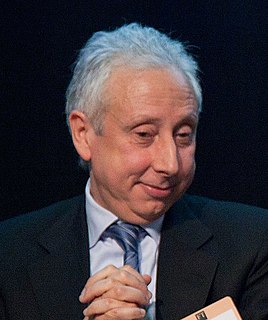
Itatiaia National Park, established in 1937, is the oldest national park in Brazil. It is located on the border between the states of Rio de Janeiro and Minas Gerais.

Macaé is a municipality located in the Brazilian state of Rio de Janeiro, 180 km northeast of the state capital.
Nordeste Linhas Aéreas Regionais was a regional airline based in Brotas, Salvador, Bahia, Brazil which operated scheduled passenger services in northeast and southeast Brazil. Its main base was Deputado Luís Eduardo Magalhães International Airport, Salvador.

The Collor Plan, is the name given to a collection of economic reforms and inflation-stabilization plans carried out in Brazil during the presidency of Fernando Collor de Mello, between 1990 and 1992. The plan was officially called New Brazil Plan, but it became closely associated with Collor himself, and "Plano Collor" became its de facto name.

Companhia Siderúrgica Nacional (CSN) is the second major steel-maker company in Brazil. Its main plant is located in the cities of Volta Redonda and Barra Mansa, in the state of Rio de Janeiro. Its current CEO is Benjamin Steinbruch.

The Rio de Janeiro Stock Exchange was Brazil's second largest exchange, and was amongst the oldest of Brazilian stock exchanges. Its inauguration occurred in July 14, 1820, 3 years after the 1st Brazilian stock exchange inaugurated, the today inactive Salvador Exchange; and before the Brazilian Independence process began.
Carbon finance is a branch of environmental finance that covers financial tools such as carbon emission trading to reduce the impact of greenhouse gases (GHG) on the environment by giving carbon emissions a price.
Environmental issues in Brazil include deforestation, illegal wildlife trade, illegal poaching, air and water pollution, land degradation and water pollution caused by mining activities, wetland degradation, and severe oil spills.
The Instituto Brasileiro de Economia, (IBRE) is a Brazilian institute located in Rio de Janeiro. IBRE was founded in 1951, originally lead by Jorge Kingston and Alexandre Kafka, linked to the Fundação Getúlio Vargas. IBRE focuses on measurements and applied research concerning the Brazilian economy. The IBRE includes: the Data Management Division − in charge of producing and disseminating economic statistics; the Applied Economics Division − in charge of studies on the Brazilian economy; and the Publications and Events Division.

The Escola Brasileira de Administração Pública e de Empresas is a Brazilian private higher education institution founded in April 1952 and linked to the Fundação Getúlio Vargas. The School also works as a research institution. Its academic programs include: Undergraduation in Administration, Online Undergraduation in Technological Management Processes, Master of Public Administration, Executive Master of Business Administration, Doctor of Administration and Post-Doctorate in Administration.
The Escola de Pós-Graduação em Economia is a Brazilian private higher education institution, founded in 1960 and linked to the Fundação Getúlio Vargas, located in Rio de Janeiro-RJ, Brazil. It was established with the name Centro de Aperfeiçoamento de Economistas, where Bachelors of Economics prepared to take master's and doctoral programs abroad. In January, 1966, CAE became known as EPGE, with the introduction of its master’s graduate program. Eight years later, in 1974, the Doctoral program was created.
Movimento Negro is a generic name given to the diverse Afro-Brazilian social movements that occurred in 20th-century Brazil, particularly those movements that appeared in post-World War II Rio de Janeiro and São Paulo.

Pérsio Arida is a Brazilian economist and a former president of the Central Bank of Brazil.

Colombian Institute of Technical Standards and Certification is a non-profit private Colombian organization that oversees the compliance of national and international standards. It is an open organization with members from the Colombian government, private sector and in general any individual who might be interested in the compliance of standards in Colombia. Icontec works closely with other international organizations for standardization such as ANSI and DIN. Icontec accredits organizations, companies and individuals that engage in the manufacturing or development of products and industrial processes. Icontec is a member of the International Organization for Standardization ISO and is an active partner in regional standards organizations such as COPANT and IEC. Icontec is present in different countries of the Americas and the Caribbean. Its headquarters are located in Bogota, Colombia.

Getúlio Dornelles Vargas was a Brazilian lawyer and politician, who served as President during two periods: the first was from 1930–1945, when he served as interim president from 1930–1934, constitutional president from 1934–1937, and dictator from 1937–1945. After being overthrown in a 1945 coup, Vargas returned to power as the democratically elected president in 1951, serving until his suicide in 1954. Vargas led Brazil for 18 years, the longest of any President, and second in Brazilian history only to Emperor Pedro II among heads of state. He favored nationalism, industrialization, centralization, social welfare and populism – for the latter, Vargas won the nickname "The Father of the Poor". Vargas is one of a number of populists who arose during the 1930s in Latin America, including Lazaro Cardenas and Juan Perón, who promoted nationalism and pursued social reform. He was a proponent of workers' rights as well as a staunch anti-communist.
Fundação Getúlio Vargas is a Brazilian higher education institution and think tank founded on December 20, 1944, with a mission "To stimulate Brazil’s socioeconomic development". Its initial objective was to prepare qualified people to work in public and private administration in Brazil.
Fundación Avina is a Latin American philanthropic foundation working towards sustainable development in Latin America by encouraging alliances between social and business leaders.

Alog is a data center firm that provides infrastructure services in information technology, colocation, hosting management and cloud computing. The firm was founded in 2005 and its head offices are located in Rio de Janeiro and São Paulo.
João Carlos de Souza Meirelles Filho is a writer and a social entrepreneur, considered to be a reference in studies on the Amazon Basin.











